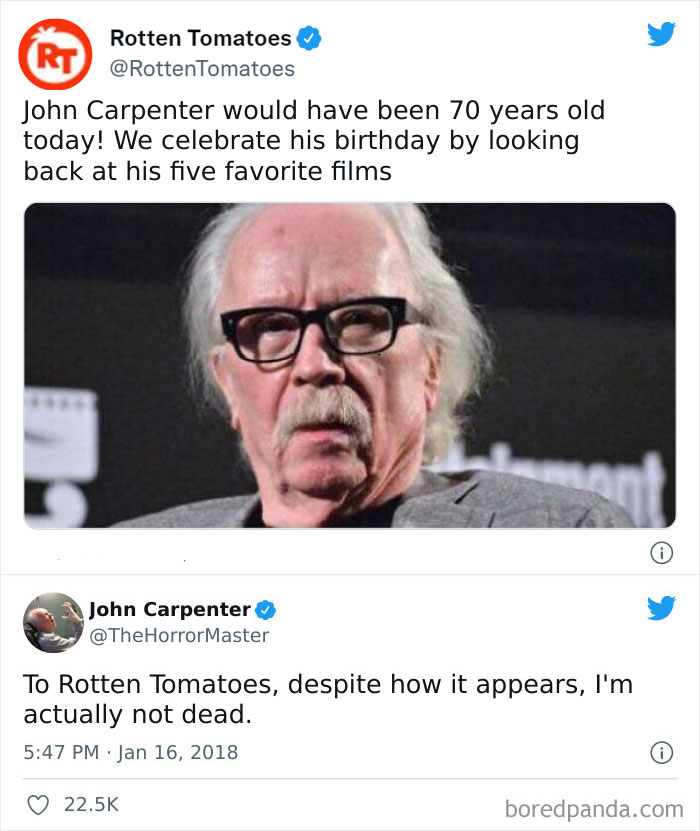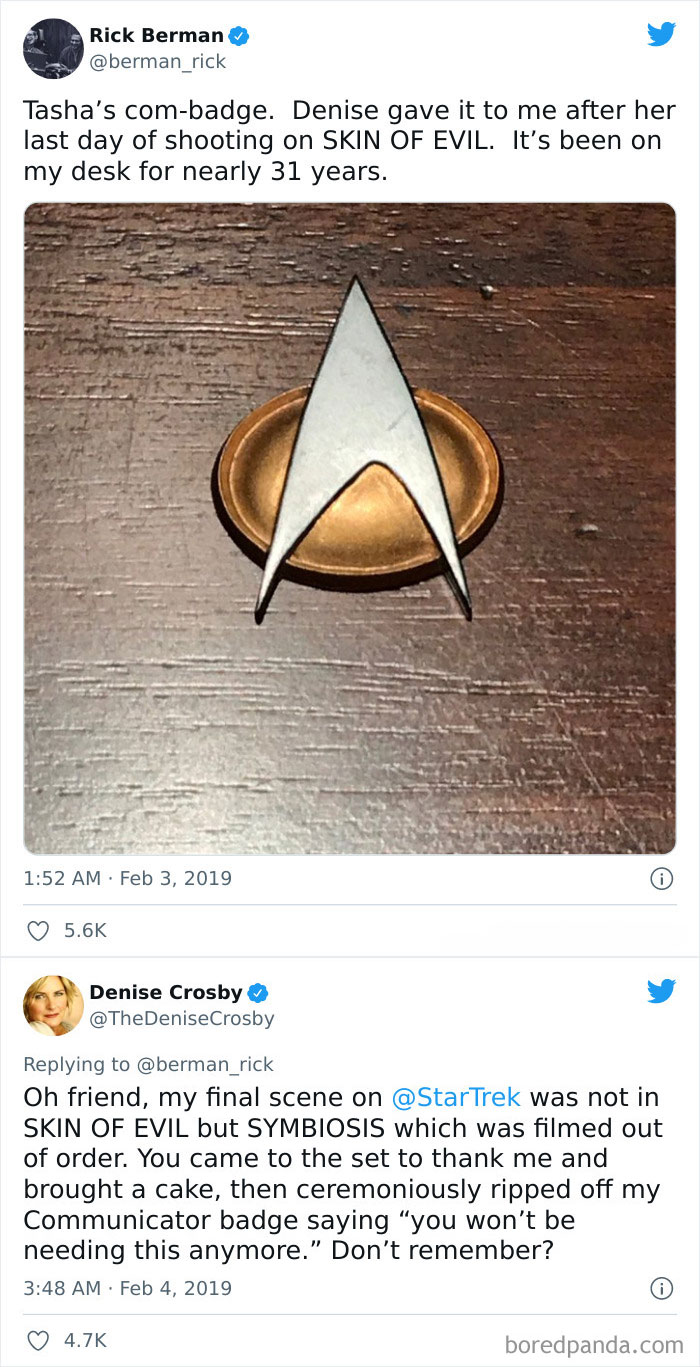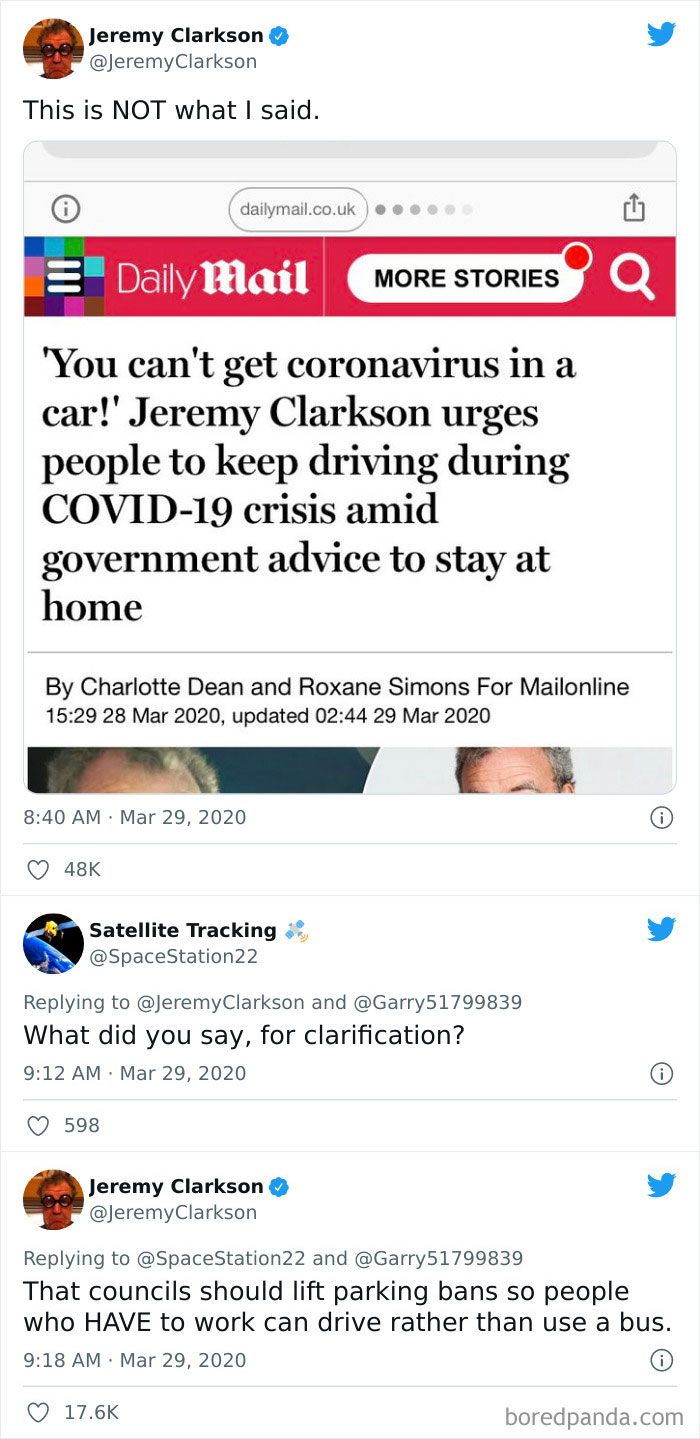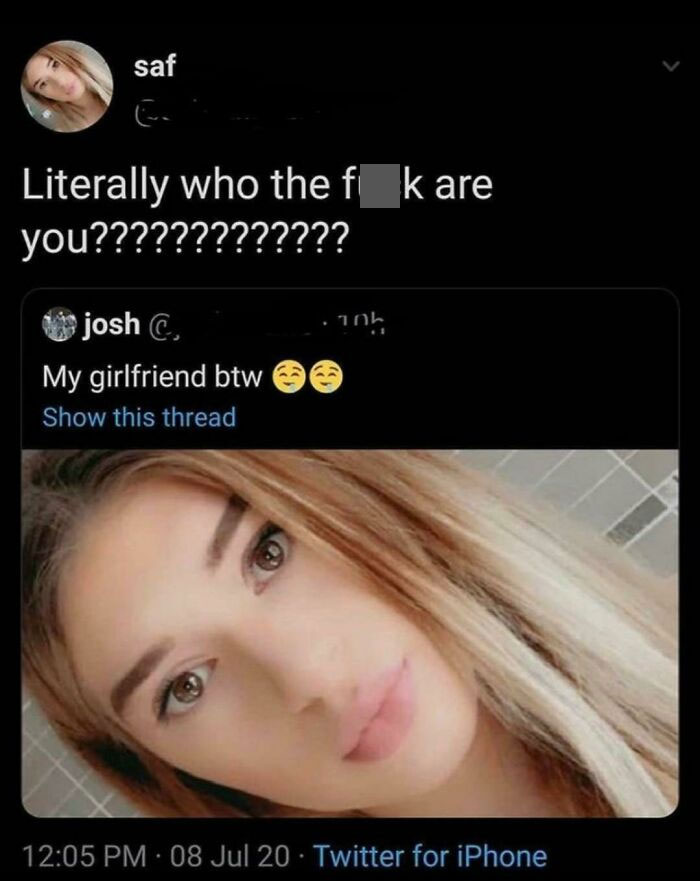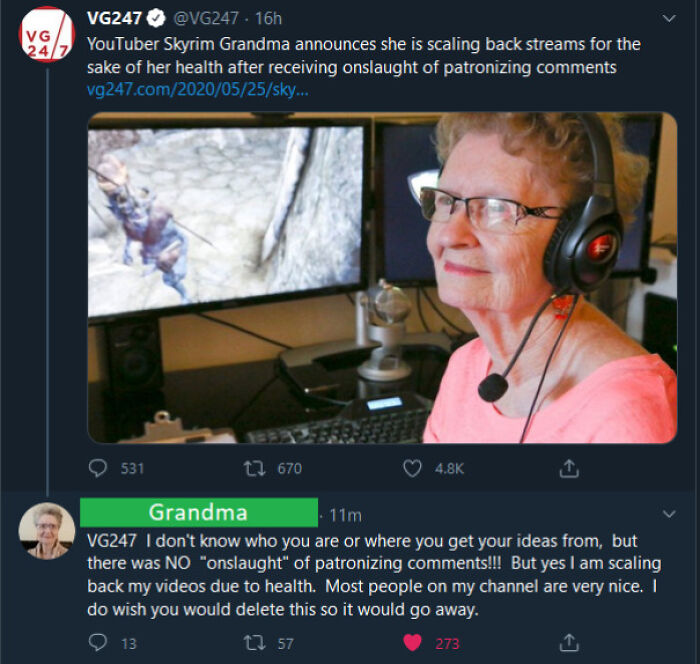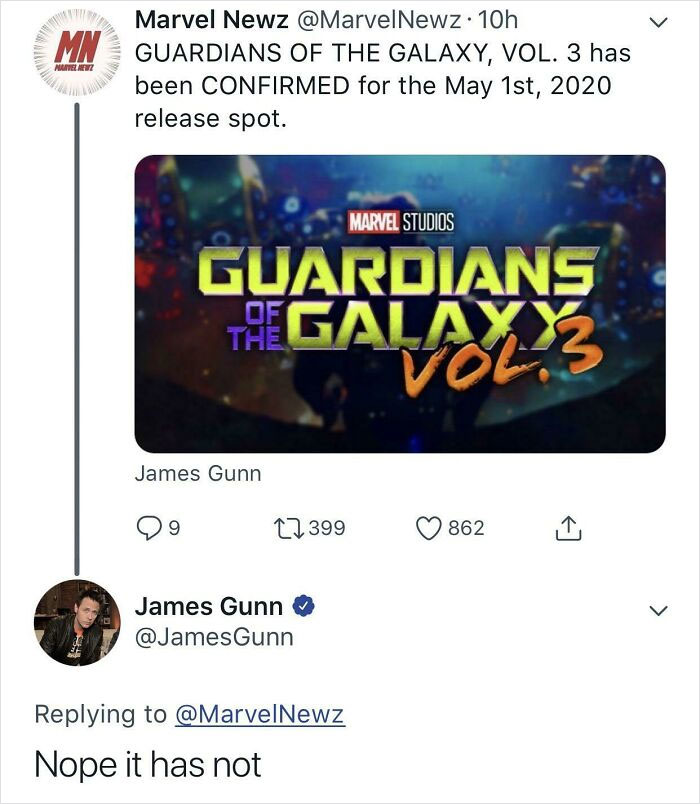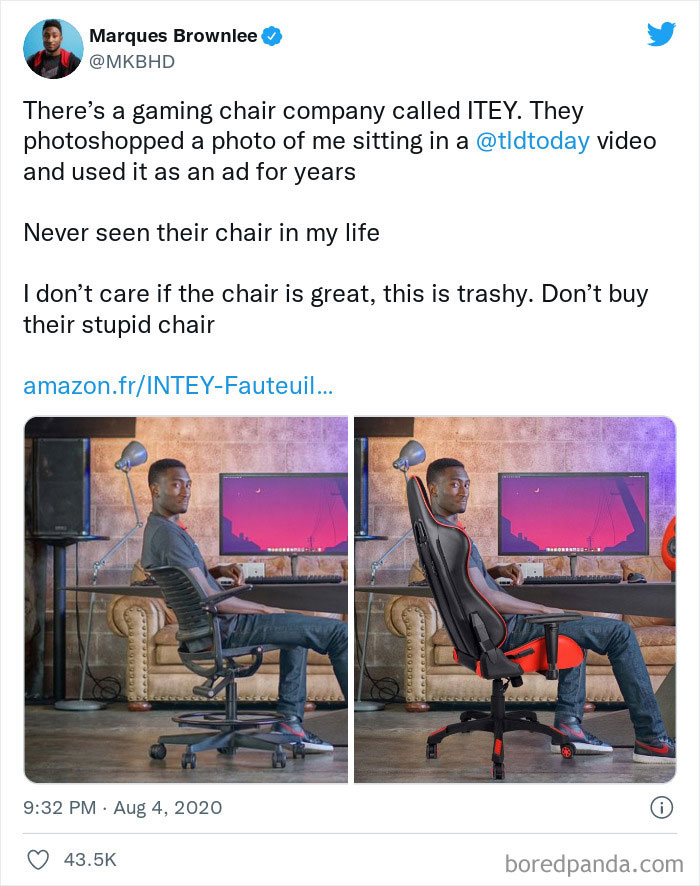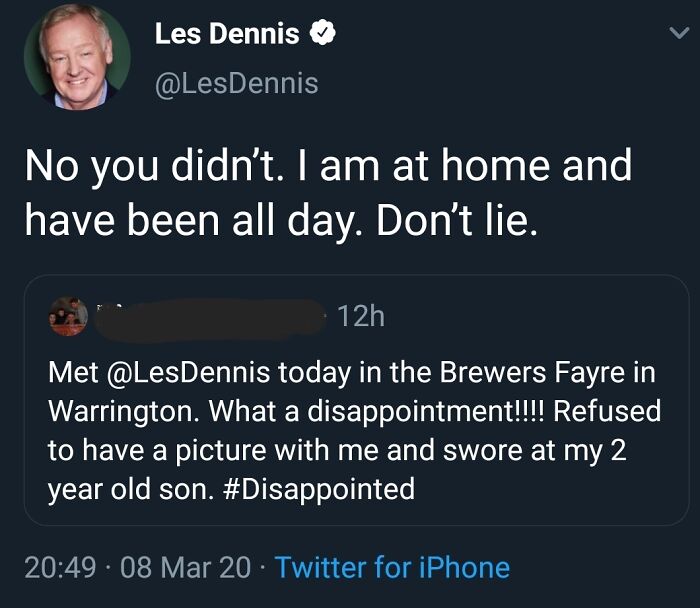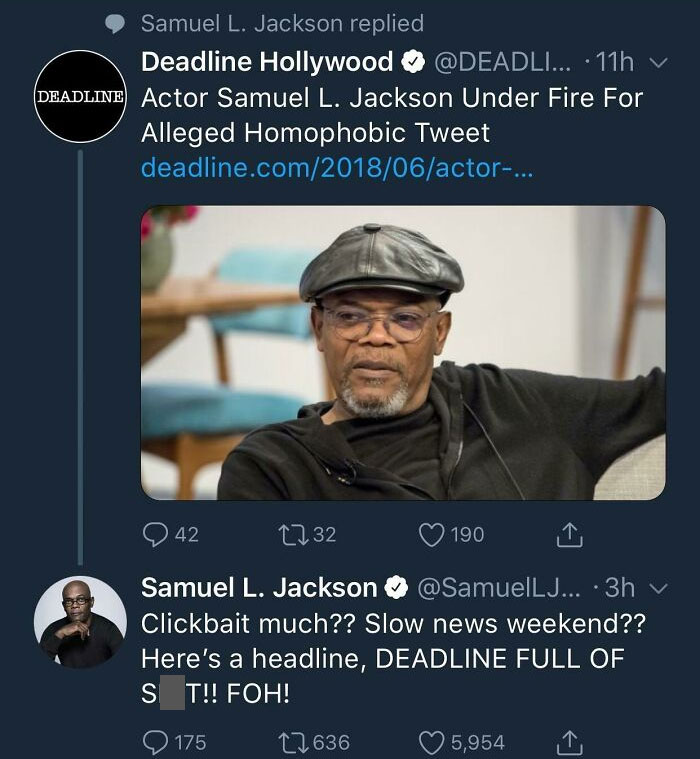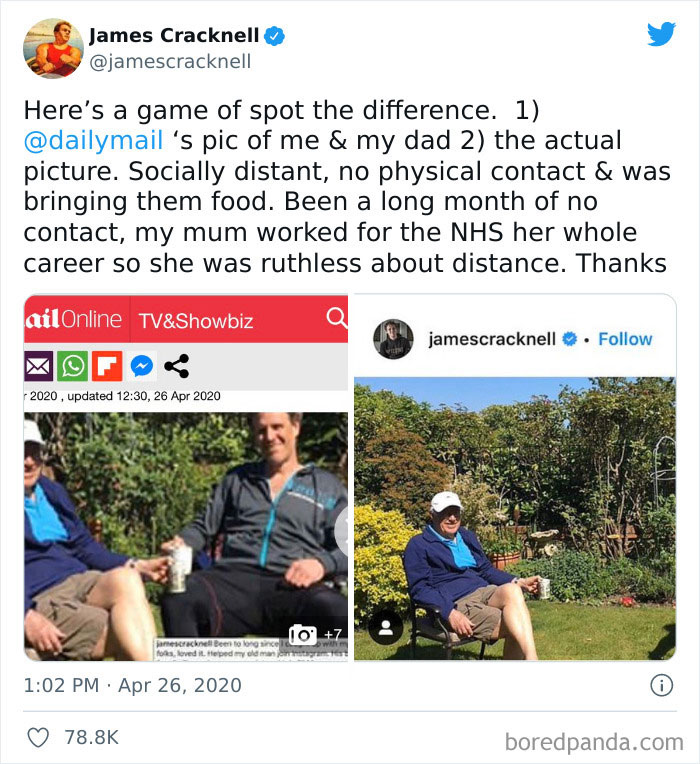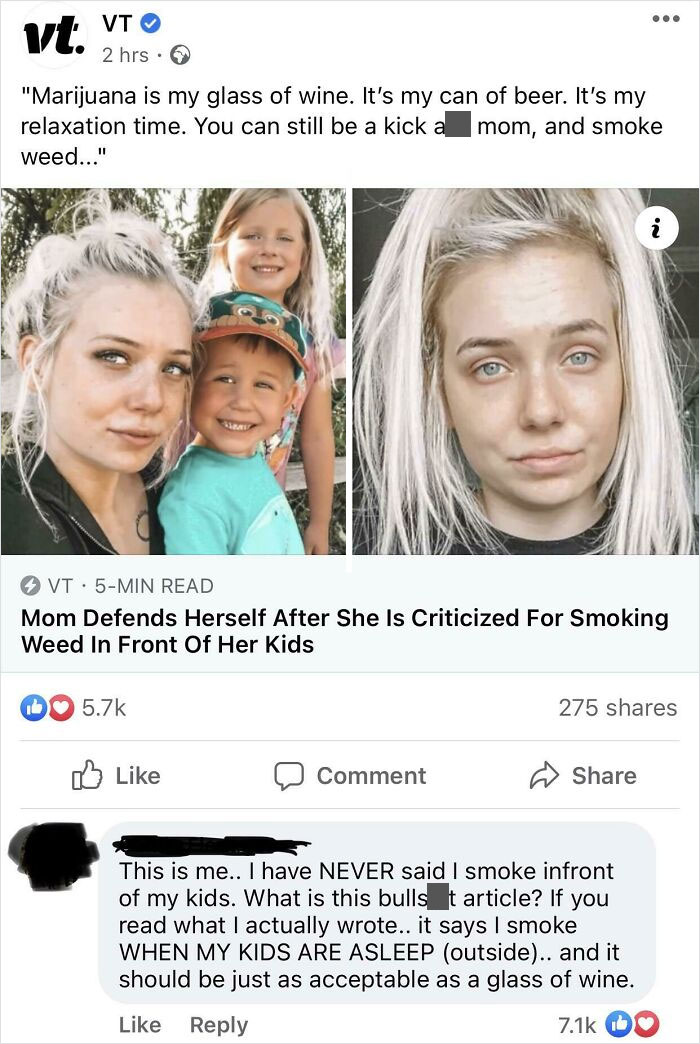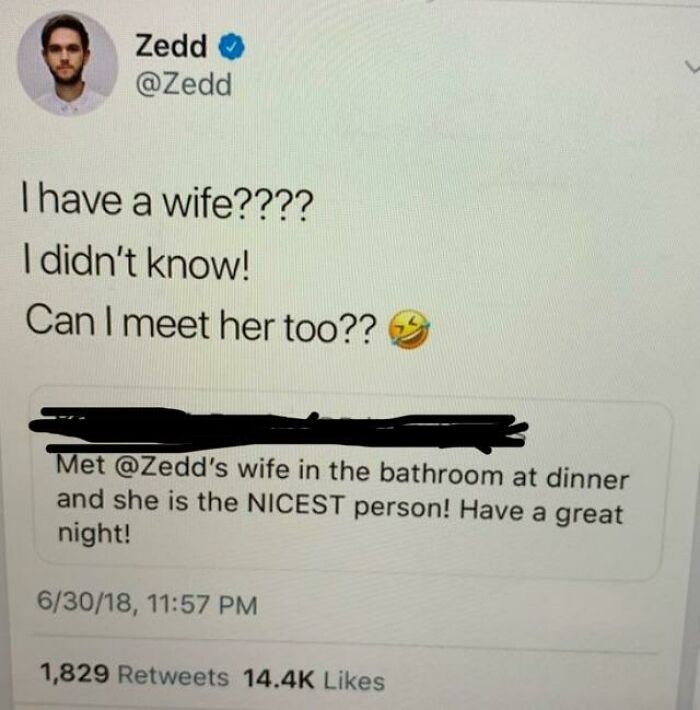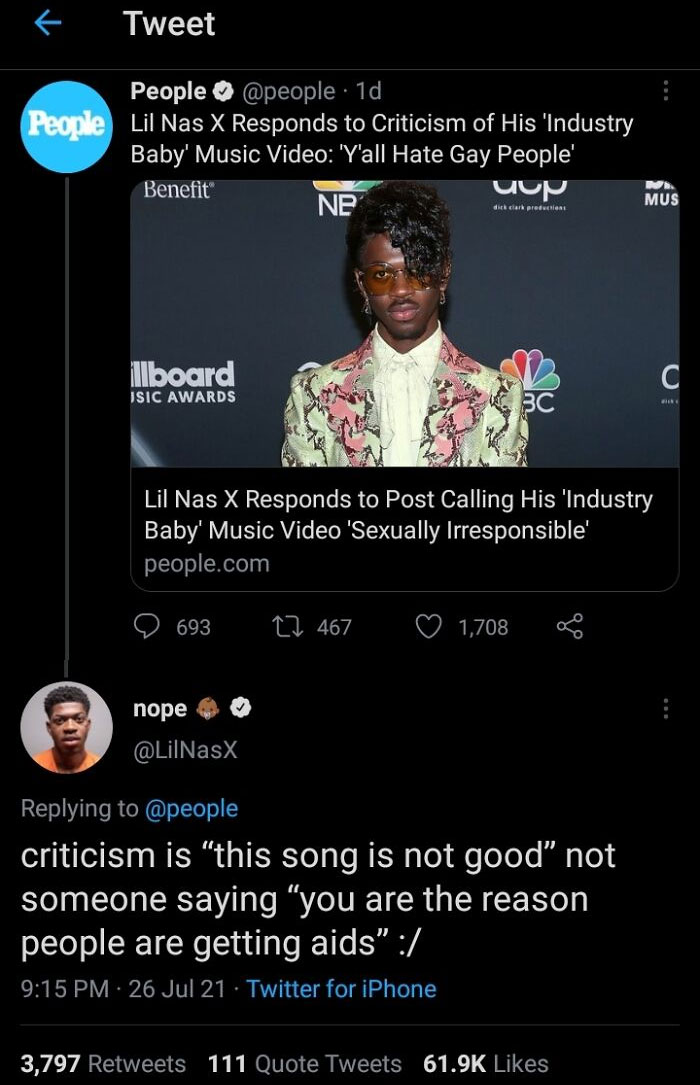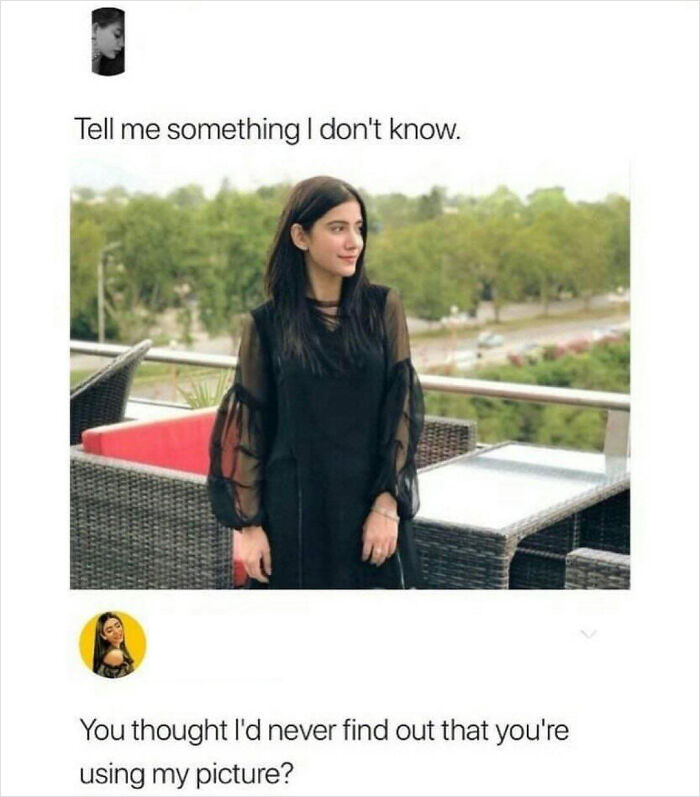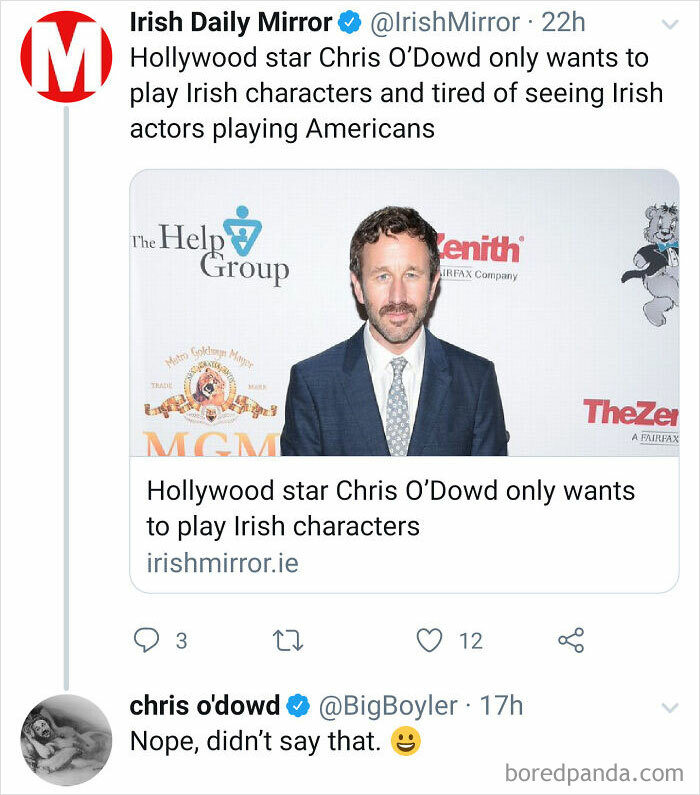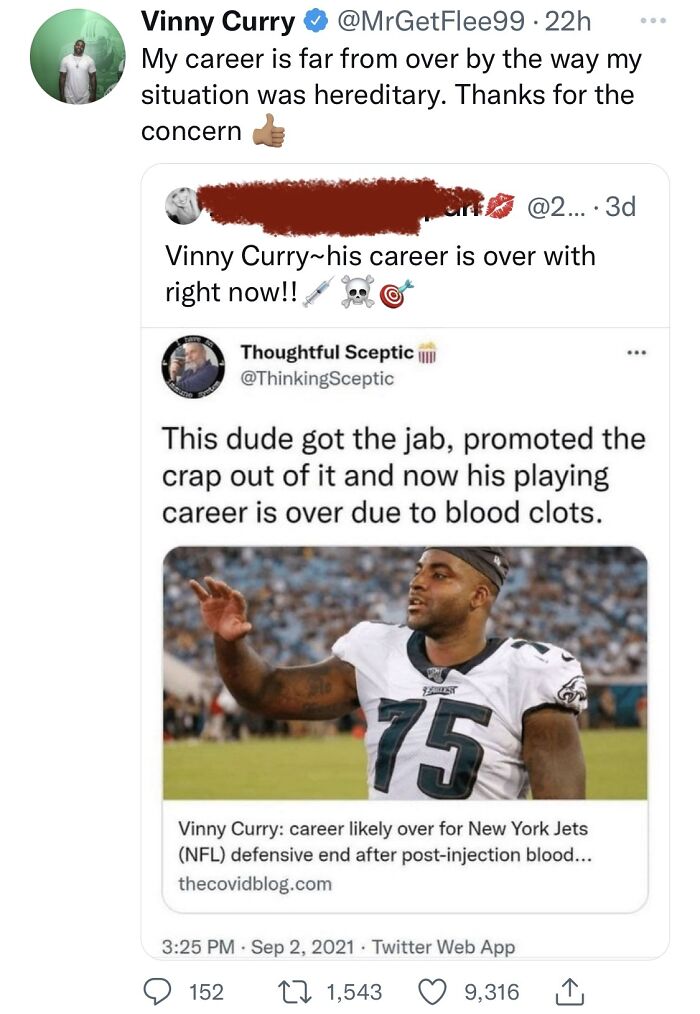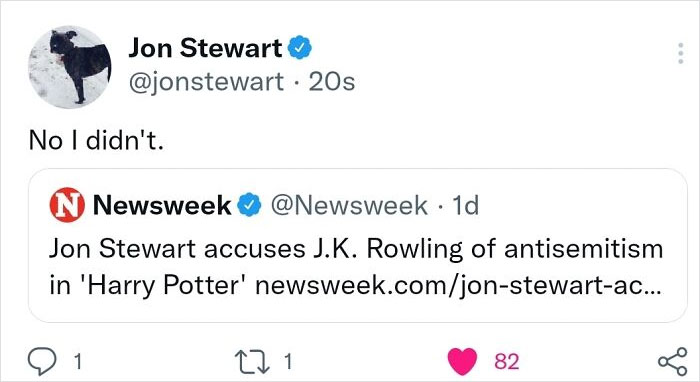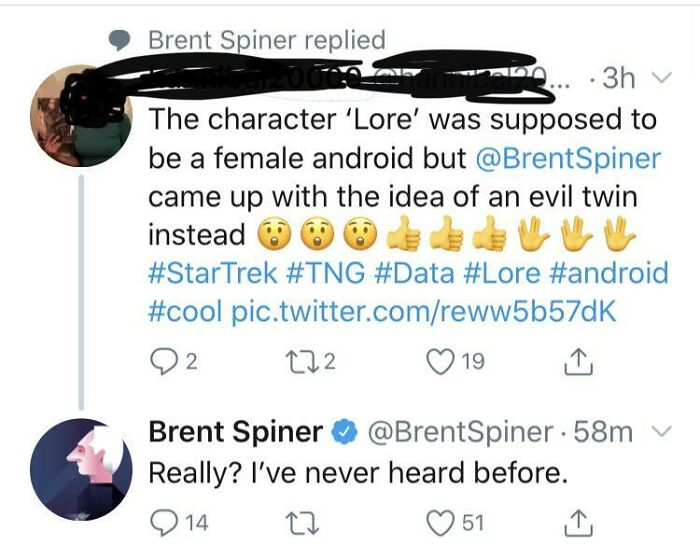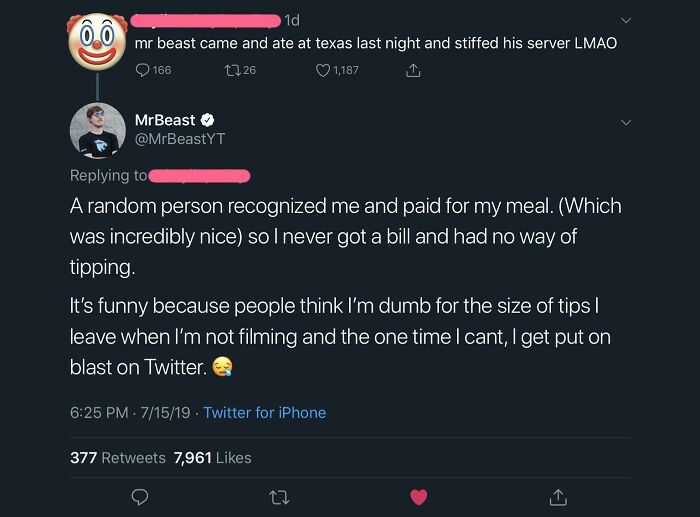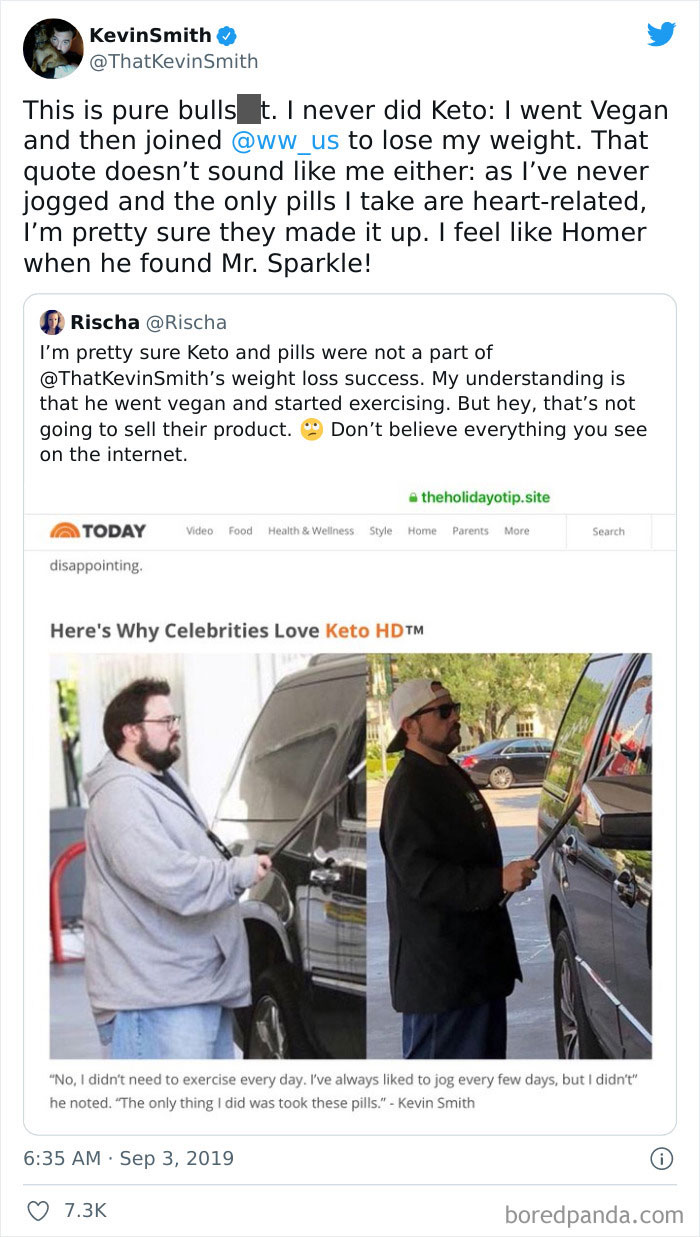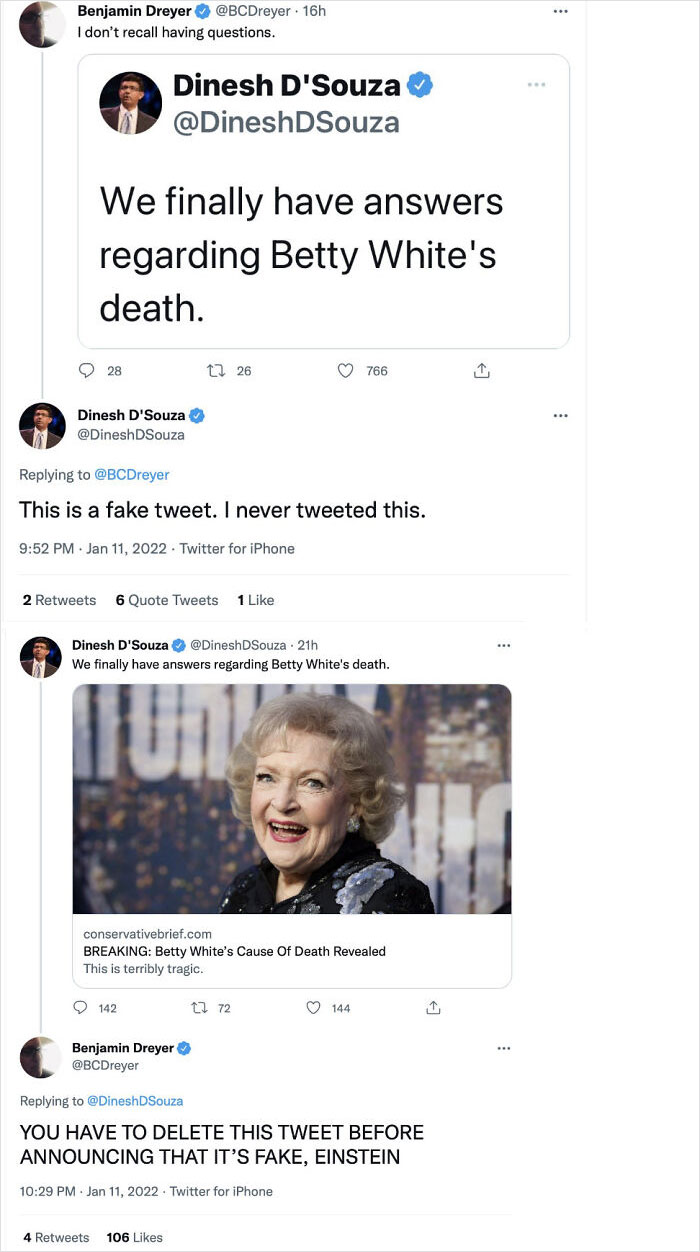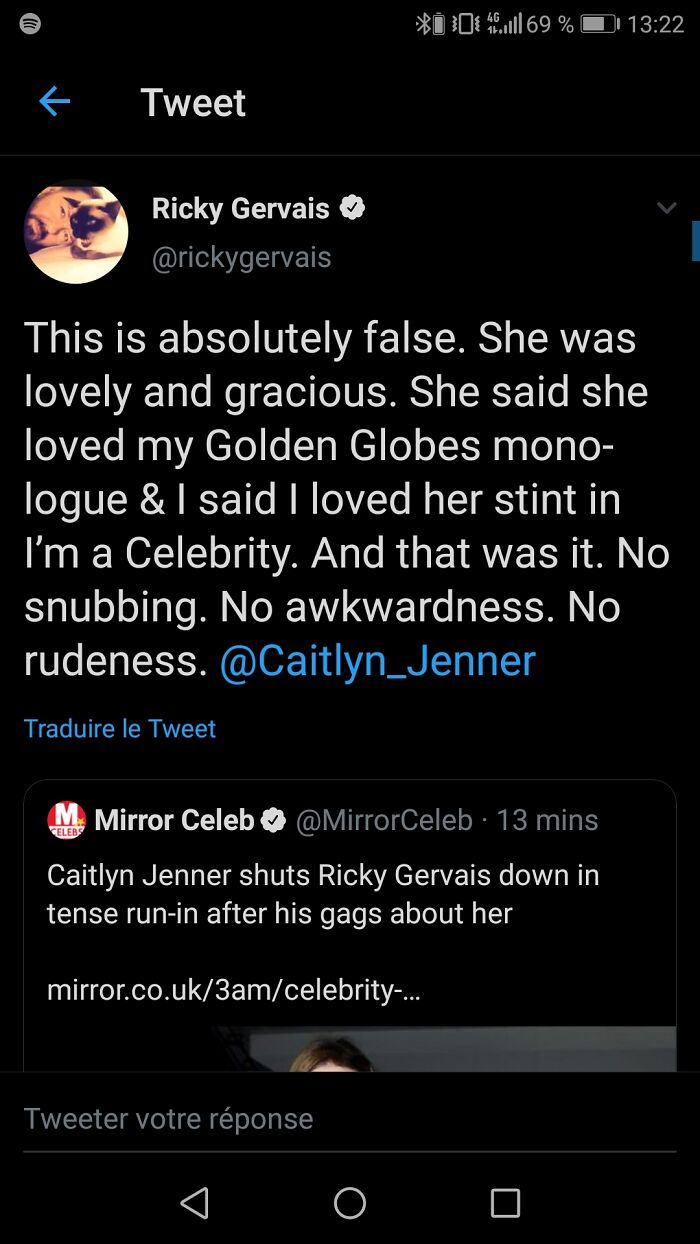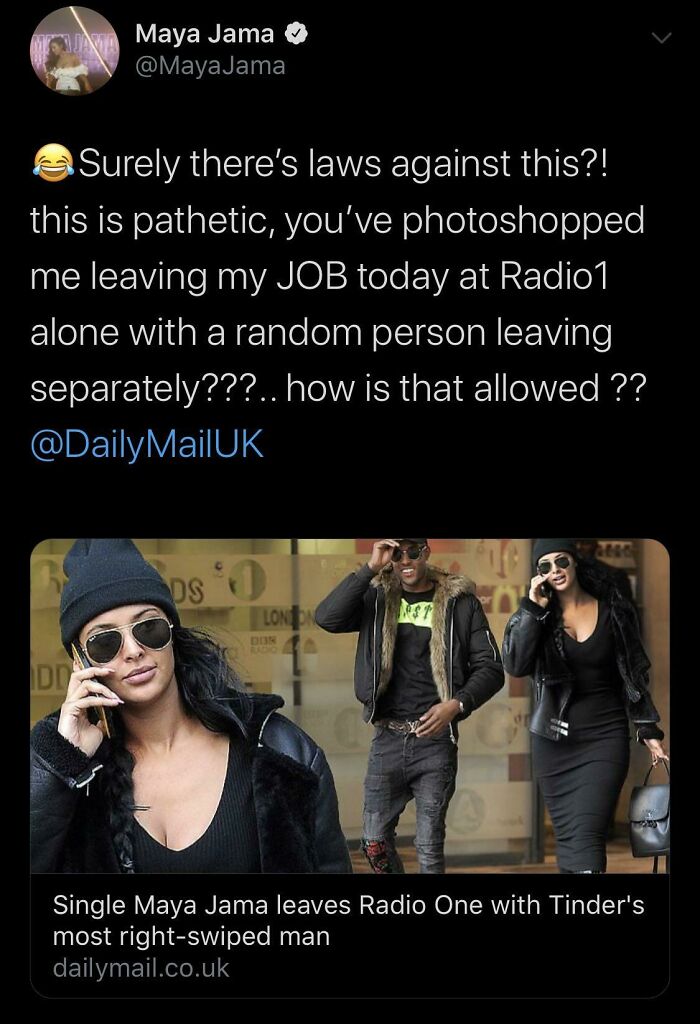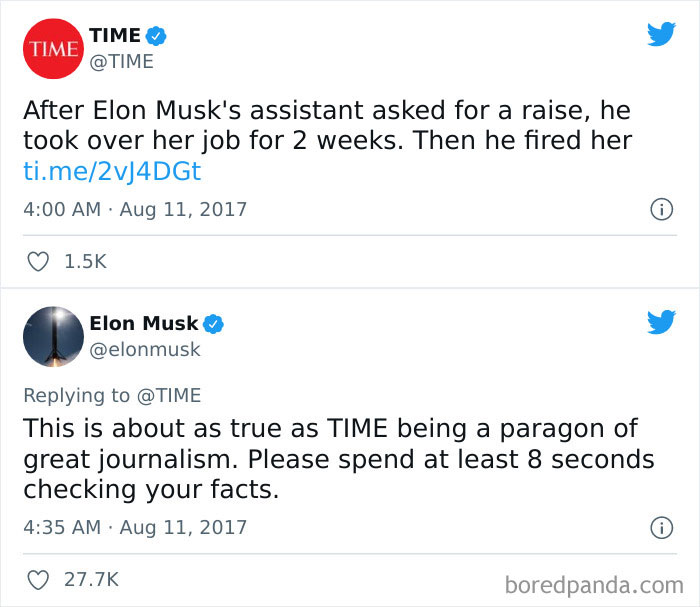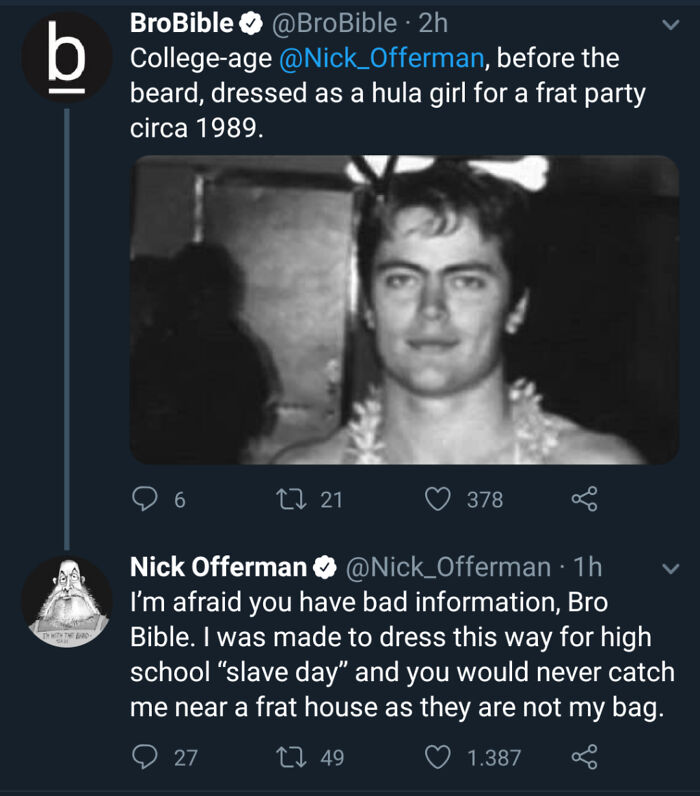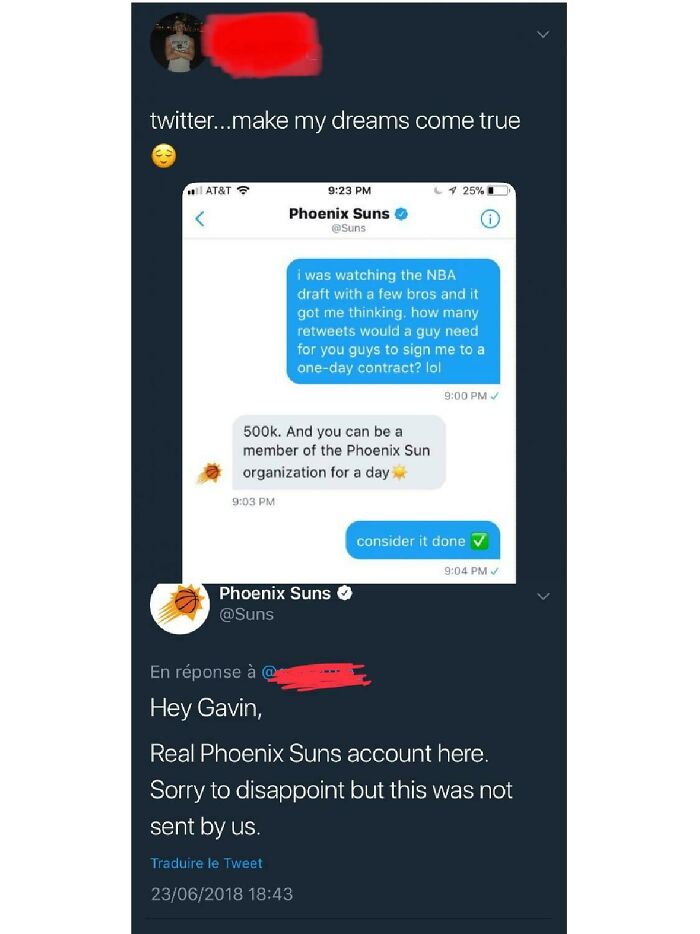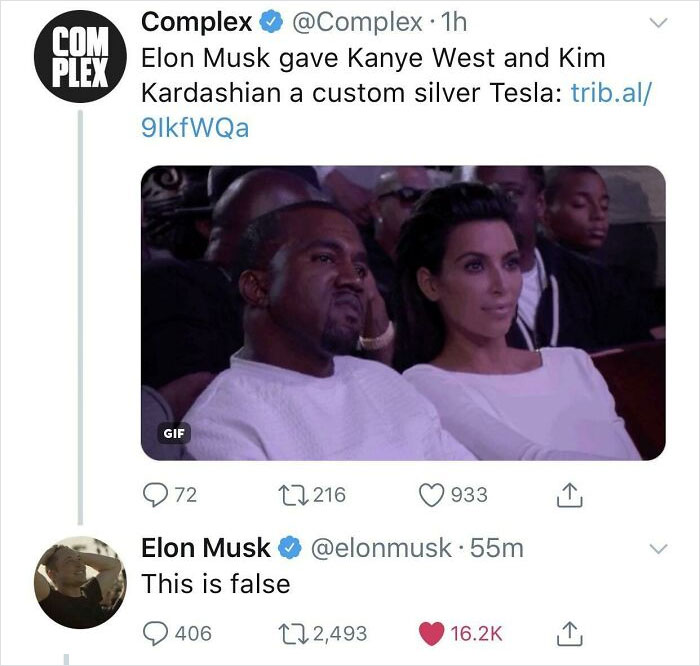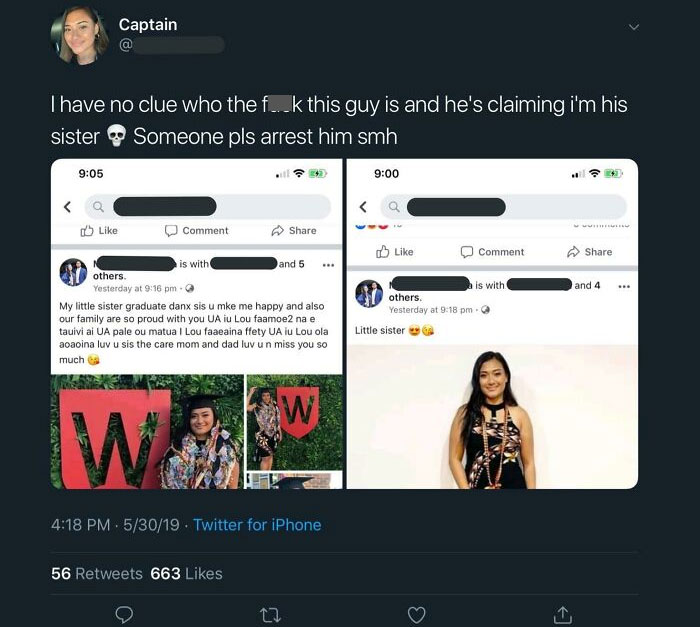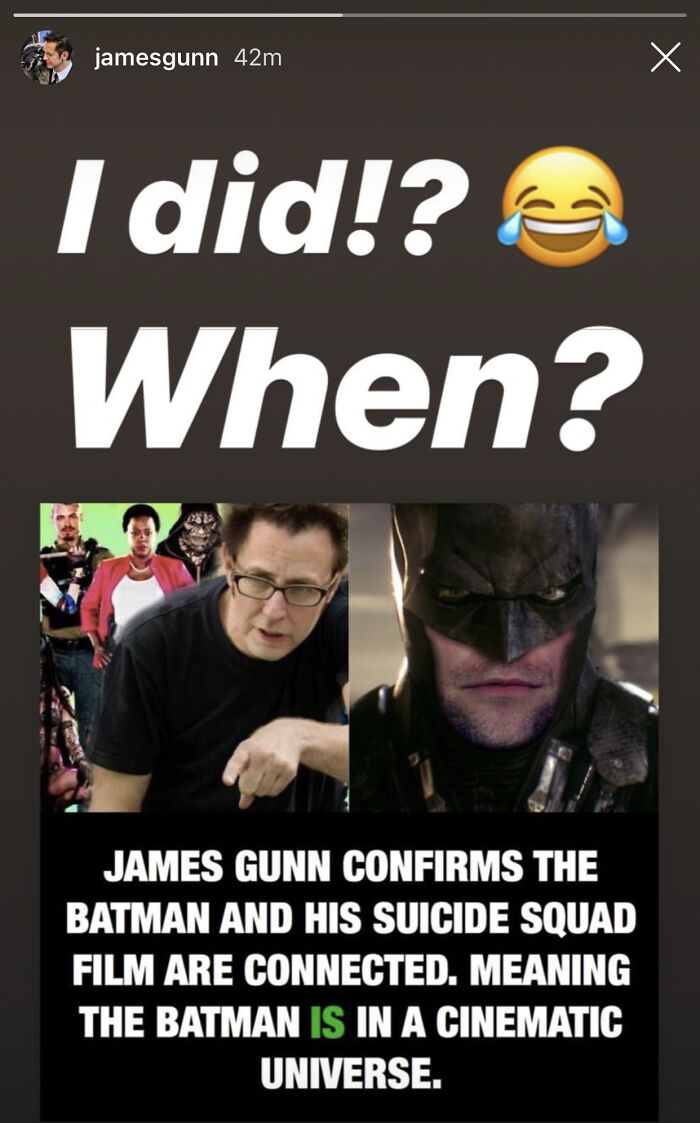More than 70 percent of Americans who follow current events feel concerned about “fake news”. Well, they have every reason to. False or misleading information can be seen everywhere—from online media to print, from TV to radio. But even if we feel overwhelmed by the number of lies we’re bombarded with daily, it shouldn’t discourage us from exposing them.
Luckily, some people who stumbled upon falsehoods said about them online chose to do everyone a public service and call them out. To celebrate their razor-sharp replies, members of the Quit Your BS subreddit decided to document their deeds and share the screenshots with the whole community.
From learning about your non-existent wife to seeing yourself in an ad you didn’t sign up for, take a look at some of the best posts Bored Panda has selected from this page, and upvote the ones you liked the most! If you’re in the mood for more posts where people expose others’ nonsense, check out our previous posts here, here, and here.
#1 Delivering The Twist Ending
Image credits: rebel_wo_a_clause
#2 Don’t See Much Star Trek Content Here
Image credits: thenewyorkgod
#3 I Guess Heroic Hollywood Really Likes That Film…
Image credits: PhenomenalPancake
Since 2013, the Quit Your BS forum has amassed more than 1.7M members. The subreddit started when user GreenMagine shared a Facebook conversation where one person was accused of lying about getting engaged. Another user responded to the post: “I wish there was a whole subreddit for this, like r/quityourb*****it or something. Or at least I hope the trend continues.” Redditor (and now moderator) Doxep replied by saying that they created a forum with that exact name.
Ever since that day, the community has been growing strong and becoming one of the main places for people to call out any type of lies, fake news, and misinformation. And from the number of posts the members share, it seems that falsehoods online get shared all too often.
#4 Wait Wha… How… Even…
Image credits: Yearning9
#5 The Mountain Calling Out An Instagram Fan Page On Their Bullsh*t
Image credits: _testep
#6 Girl Exposes Bs Account Using Her Pictures To Sell Their Product
Image credits: 773202noot
A survey conducted by the Pew Research Center found that 64 percent of American adults said fabricated news stories were causing a great deal of confusion about the basic facts of current issues and events. They interviewed 500 people on landline telephones, and 502 on cellphones. The respondents came from different backgrounds, education levels, demographics, and had different incomes.
While Americans are aware that these stories spread perplexity, they reveal a fair amount of confidence in their ability to detect such made-up tales. About four in ten respondents felt very certain that they can recognize fake stories, and another 45 percent felt somewhat confident.
Generally, about a third of the US citizens confirmed they often stumble upon fabricated political news online. Pew Research Center explained that “it is difficult to measure the precise extent to which people actually see news that has been completely fabricated—given that news consumers could see but not recognize made-up news stories as well as mistake factual stories for false ones.” Yet, these numbers show “a high-level sense of the public’s perception of this kind of content.”
#7 Chris Hemsworth Calls Out The Daily Mail
Image credits: NotTheReverseFlash
#8 That’s Sad
Image credits: Landfinn
#9 Grandma Shuts Down The Bullsh*t
Image credits: ItalianGreyhounds
While some people take the time to fact-check and find out whether things we learn in the media are true or made-up, 23 percent of respondents revealed that they have shared fake news themselves. Some people did it knowingly, others explained that they only later realized that it was in fact false. “When it comes to how to prevent the spread of fake news, many Americans expect social networking sites, politicians, and the public itself to do their share,” the researchers added.
Fake news is definitely not a new threat. The term became Collins Dictionary’s word of the year in 2017 and kept popping up in the headlines ever since. While fake news exists across a variety of channels, much of the recent conversation about it involves social media platforms.
#10 That Was Quickly Gunned Down
Image credits: Jo_Suy_Us
#11 Youtuber Mkbhd Calls Out Chair Company, That Photoshopped Him On Their Ad Against His Will
Image credits: tasoscon
#12 Trying To Make A Celebrity Look Bad Backfires
Image credits: pineappledipshit
#13 Samuel L Jackson Wasn’t Having Any Of Their Bullsh*t Tn
Image credits: iamadeadreflection
#14 Dailymail Literally Photoshops Man’s Picture To Accuse Him Of Neglecting Social Distancing With His Dad…
Image credits: jamescracknell
Previously, Andrew Selepak, Ph.D., a program coordinator of Master’s in Social Media and a lecturer at the University of Florida, told Bored Panda that “everyone engages in self-image manipulation on social media. We highlight and promote our best moments while leaving out the bad or mundane.”
“Before social media, a person could tell a lie to another and then the exact opposite lie to someone else, and it is possible no one would know. But you cannot do this on social media because everyone you know finds out at once.”
He noted that the one great thing about the internet is that collectively, we can uncover falsehoods and those who spread them more than ever before. “If anything, social media may actually limit the amount of outright lying people do anymore because anything they say or post can be refuted by any and all of their followers rather than by one person,” the lecturer said.
#15 Misleading Headline Called Out By Mom
Image credits: Dele10
#16 She Met Zedd’s “Wife” In The Bathroom. Gets Called Out Directly
Image credits: Avrogadroburger
#17 Apparently Homophobia = Criticism
Image credits: The-Alien-From-Mars
#18 Credit To U/Haqummar
Image credits: random_person509
Andrew Selepak mentioned that lies on social media can be intentional or unintentional. For example, when we see a story criticizing a politician or sports team we don’t like, we will probably share it because we want it to be true: “We aren’t the originator of the lie, but we are spreading it because we didn’t do our due diligence to fact check it first.”
Yet, this is not as bad as being the creator of a lie. “Politicians, internet trolls, and influencers spread lies about issues like COVID-19, their political party or the opposition, or other major political issues, to manipulate the public.” Such posts are dangerous because these people have a greater reach. Thus, their lies can be further spread by individuals who want to believe they’re true.
#19 Ign Does An Ign
Image credits: Darkcrap
#20 X-Men Director Shuts Down Fake News Article
Image credits: logangraves
#21 Chris O’dowd Calling Out The Daily Mirror
Image credits: dragonballelf
“This is how fake news spreads,” Selepak explained. “But it can be difficult to combat fake news because as individuals we often don’t have reach as influencers. We can debunk and dispute lies, but not as many people will see it, and some might be more willing to believe the lie than the truth.”
We are all impacted by dishonesty on social media. Selepak provided COVID-19 as an example: “those who were telling lies that Covid was spread through 5G towers led some to take down the towers for fear over the disease.” He added that people also get hurt by encountering exaggerations online. “We know that celebrities have personal trainers, personal chefs, … and Photoshopped images they post to social media that then receive thousands if not millions of likes on their post. Social media has a way of setting cultural norms on behavior, beauty, relevancy.”
#22 Jeremy Clarkson Calling Out A Fake Story
Image credits: ivanbonadeo
#23 Best. Day. Ever!
Image credits: seitancauliflower
#24 Jj Watt Calls Out His Own Team
Image credits: I_Am_The_One_66
#25 Pretty Sure This Counts
Image credits: Grimduk
“When people, and especially young girls, see the fake body images presented on social media as the norm and forget that what they see on social media is not real, it impacts how they see their body, the bodies of others, and what they idealize as the beauty standard,” the lecturer said. “This is unhealthy and can lead to anxiety, depression, and eating disorders.”
#26 John Stewart: No I Didnt
Image credits: scrugbyhk
#27 Don’t Try To Bullsh*t Data
Image credits: thenewyorkgod
#28 She Tried To Call Out Mrbeast
Image credits: CutieMiyuki
#29 Silent Bob Says No
Image credits: trisw
While social media is full of dishonesty, “we cannot expect the platforms to remove all of this content, nor should we want them to. Social media should be a free speech space where ideas are debated and lies are publicly disputed,” Andrew Selepak concluded.
#30 Imagine Being So Consumed By Calling Everything Fake News, That You Become One With The Fake News
Image credits: thenewyorkgod
#31 It’s Always Nice When Media Create Fake Dramas…
Image credits: zabaaaa
#32 Kumail “Bailed” On Sh*tty Journalism
Image credits: krustykarbspizza
#33 Loudwire Back With Their Sh*t Again
Image credits: SamuDrummer
#34 News Outlet Clickbait
Image credits: sudopm
#35 Elon Musk Shuts Down Time Magazine
Image credits: BradGroux
#36 Nick Offerman Calls Out ‘Brobible’
Image credits: andipe220
#37 Guy Fishes For Retweets, Gets Called Out By Official Account
Image credits: trollszn
#38 Elon Musk Should Just Start Posting His Own Tweets Here To Be Honest
Image credits: astrvmnauta
#39 The Sister He Always Wanted But Never Had
Image credits: xantv
#40 James Gunn Responds To Fake Article
Image credits: SuperSlothyGamer
Go to Source
Author: Ilona Baliūnaitė
